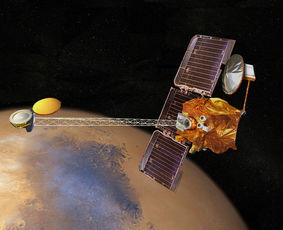When it comes to the automotive industry, electrical engineering plays a crucial role in shaping the modern vehicles we see on the roads today. Let's explore the significance of electrical engineering in the automotive sector and how it has revolutionized the way we design, manufacture, and operate vehicles.
1. Integration of Electronic Systems
Modern vehicles are equipped with a wide range of electronic systems that rely on sophisticated electrical engineering. These systems include:
- Engine control units: These units use sensors to monitor and optimize engine performance, fuel efficiency, and emissions.
- Advanced driverassistance systems (ADAS): ADAS systems use sensors, cameras, and radar to enhance vehicle safety by providing features like automatic emergency braking, lanekeeping assistance, and adaptive cruise control.
- Infotainment systems: These systems incorporate multimedia interfaces, navigation systems, and connectivity features to enhance the driving experience.
2. Electrification of Vehicles
Electrical engineering has been instrumental in the shift towards vehicle electrification. Electric vehicles (EVs) and hybrid electric vehicles (HEVs) utilize complex electrical systems to power the vehicle and control energy flow. Key areas where electrical engineering plays a crucial role in vehicle electrification include:
- Battery management systems: These systems monitor and control the charging and discharging of the vehicle's battery pack to ensure optimal performance and longevity.
- Power electronics: Power electronic circuits and components are essential for converting and controlling electrical energy between the battery, motor, and other vehicle systems.
- Charging infrastructure: Electrical engineers are involved in the design and development of charging stations and infrastructure to support the growing number of electric vehicles on the road.

3. Vehicle Connectivity and Communication
Modern vehicles are increasingly equipped with connected features that rely on robust electrical and electronic systems. Vehicletoeverything (V2X) communication, invehicle telematics, and connectivity to external networks (such as cloud services and infrastructure) require sophisticated electrical engineering solutions for seamless integration and operation.
4. Advancements in Autonomous Vehicles
Autonomous vehicles represent the future of the automotive industry, and electrical engineering is at the forefront of this technological revolution. Key areas where electrical engineering is driving advancements in autonomous vehicles include:
- Sensor fusion: Integrating data from various sensors (such as LiDAR, radar, and cameras) to create a comprehensive understanding of the vehicle's surroundings.
- Computing systems: Developing highperformance computing platforms capable of processing large amounts of data in realtime to enable autonomous driving decisions.
- Control systems: Implementing sophisticated control algorithms that govern the vehicle's behavior, trajectory planning, and decisionmaking processes.
Recommendations for Electrical Engineers in the Automotive Industry
For electrical engineers looking to build a successful career in the automotive industry, here are some key recommendations:
- Stay updated on industry trends: The automotive industry is rapidly evolving, so it's essential to stay informed about the latest technological advancements and regulatory developments.
- Specialize in relevant areas: Consider specializing in areas such as embedded systems, power electronics, automotive design, or autonomous vehicle technology to enhance your expertise.
- Develop strong problemsolving skills: The automotive industry presents complex engineering challenges, so honing your problemsolving skills will be invaluable in your career.
- Collaborate with interdisciplinary teams: Working collaboratively with professionals from diverse backgrounds (such as mechanical engineers, software developers, and designers) will broaden your perspective and foster innovation.
By understanding the pivotal role of electrical engineering in the automotive industry and embracing ongoing learning and professional growth, electrical engineers can contribute to shaping the future of mobility and transportation.











